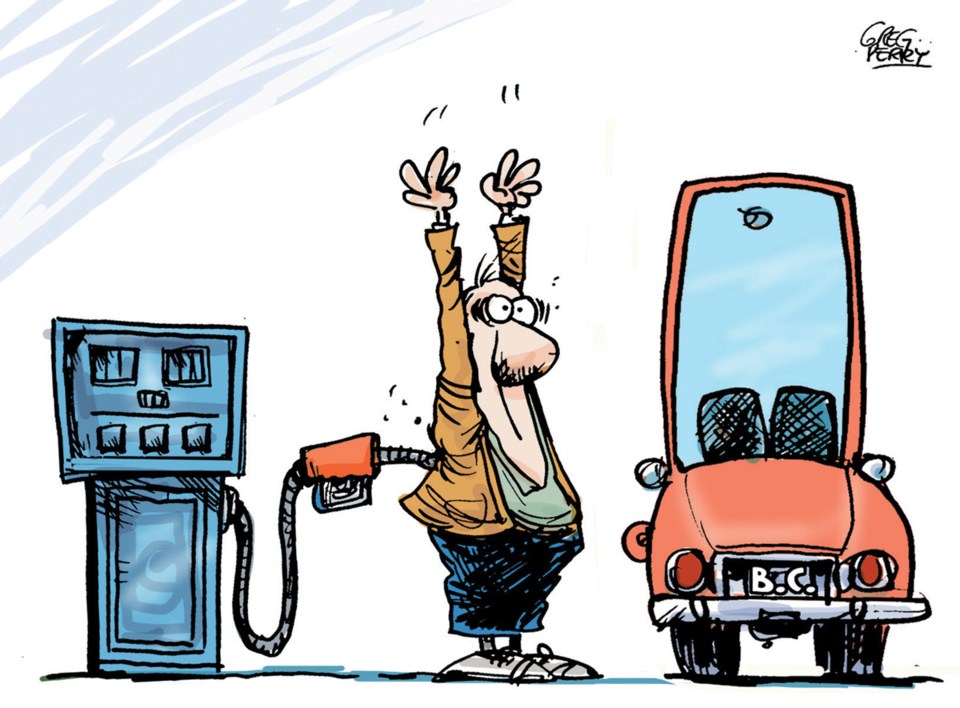If you believe the campaign rhetoric, Alberta’s premier-designate, Jason Kenney of the United Conservatives (UCP), will soon “turn off the taps” on oil and gasoline shipments to B.C., using a bill passed, but never enacted, by his NDP predecessors early on in the running dispute between the B.C. and Alberta governments over the Trans Mountain Pipeline expansion.
The effect, some argue, will be another spike in gas prices.
Kenney’s campaign threat was another kick at the political football that gas prices had already become in B.C., after a small carbon tax increase and other factors propelled the price at the pumps to record levels – at least on the Lower Mainland.
Here on the Coast prices seem to be, at least for now, hovering about 10 cents/litre lower.
On Monday the BC Liberals posted on their Facebook page, “Gas has reached $1.70/litre in Metro Vancouver and John Horgan is doing nothing to help you,” after posting the week before, “John Horgan is causing major pain at the pumps, and won’t take responsibility for it. B.C. has the highest gas prices in North America – when will the Premier give British Columbians a break?”
Premier Horgan, for his part, told reporters that his government would consider offering “some relief,” but didn’t give any specifics.
With Kenney’s UCP, no friends of Prime Minister Justin Trudeau, taking the helm in Alberta as a federal election nears, we can expect lots of reminders about the impact on the oil-producing provinces of the policies of the first prime minister named Trudeau.
The National Energy Program is dead and buried, but if gas prices continue to rise, we fear the ghost of another Pierre Trudeau policy – wage and price controls.
The Anti-Inflation Act of 1975 established an Anti-Inflation Board with a mandate to try to stem out-of-control price increases on a whole host of items, including gas.
When an opposition party calls for the premier to “take responsibility” and “give British Columbians a break,” and the governing party starts seriously considering offering “some relief” it could lead to the sort of political climate where turning back the clock and subjecting gas prices to something like the Anti-Inflation Board of the mid ‘70s starts to look good.
After all, the price of electricity and natural gas are already regulated. But, in our view, that would be a poor approach.
And the other “relief” some are pushing for – rolling back fuel taxes – isn’t something we can realistically hope for, especially from a provincial government determined to keep delivering on some pricey campaign promises.
But one thing is almost certain – if gas prices are high or, worse, still on the rise come this fall’s federal campaign, the politics of pricing will be very much in play.



